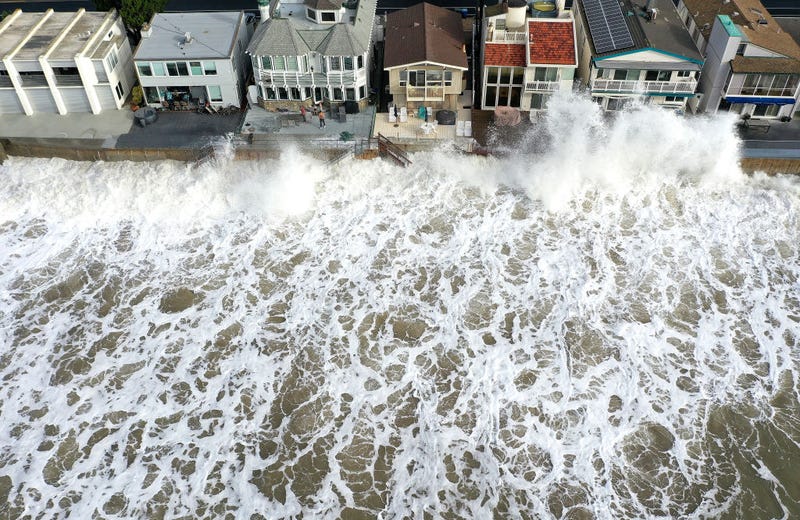
Waves as high as 16 feet are expected to come crashing on to the California coast this weekend, according to a Friday notice from the National Weather Service Los Angeles/Oxnard.
Along with the huge waves headed to San Luis Obispo County Beaches and Santa Barbara County beaches, the service warned about rip currents. Already, wild weather has included in a 4.2 magnitude earthquake in California this week.
Going forward, people who live in coastal areas of the U.S. might have to prepare for more high surf warnings such as the one Californians are under this week.
“The latest event is unlikely to be as dramatic as the waves and swell that slammed the California coast last week, but such massive waves are occurring more often than they used to researchers say, as global warming amplifies extreme weather events and pushes sea levels higher,” said a report this week in USA Today. “They say that means greater coastal flooding in the future.”
In 2022, the Sea Level Rise Technical Report issued by the National Oceanic and Atmospheric Administration and other federal agencies found that coastal flooding across the U.S. coastline will increase significantly over the next 30 years. It said that U.S. coastlines are expected to rise 10 to 12 inches by 2050.
“Sea level rise will create a profound shift in coastal flooding over the next 30 years by causing tide and storm surge heights to increase and reach further inland. By 2050, “moderate” (typically damaging) flooding is expected to occur, on average, more than 10 times as often as it does today, and can be intensified by local factors,” said the California Ocean Protection summary of the report.
In California, the council is working on ways to mitigate the impact of this change on vulnerable communities.
Per the NWS, the current high surf advisory will be in effect through 9 a.m. PST Monday.
“There is an increased risk for ocean drowning. Rip currents can pull swimmers and surfers out to sea. Large breaking waves can cause injury, wash people off beaches and rocks, and capsize small boats near shore. STAY OFF THE ROCKS,” said the NWS. It also said enhanced beach erosion is also possible, especially at high tide between 4 a.m. and 6 a.m.
People in the area are advised to stay out of the water while the surf warning is active, as rock jetties can be deadly.
